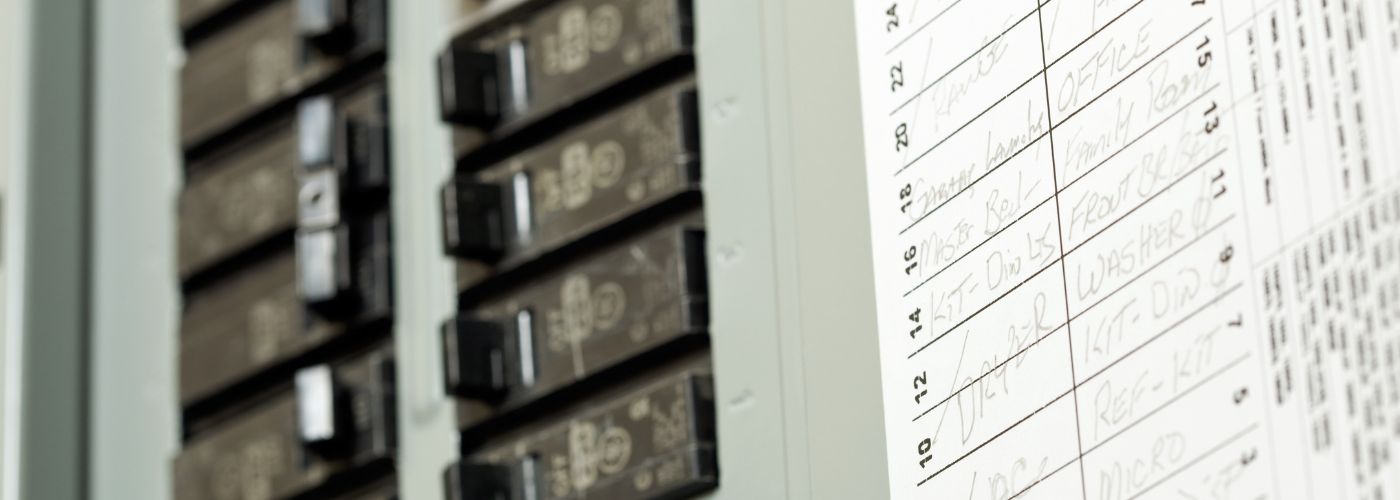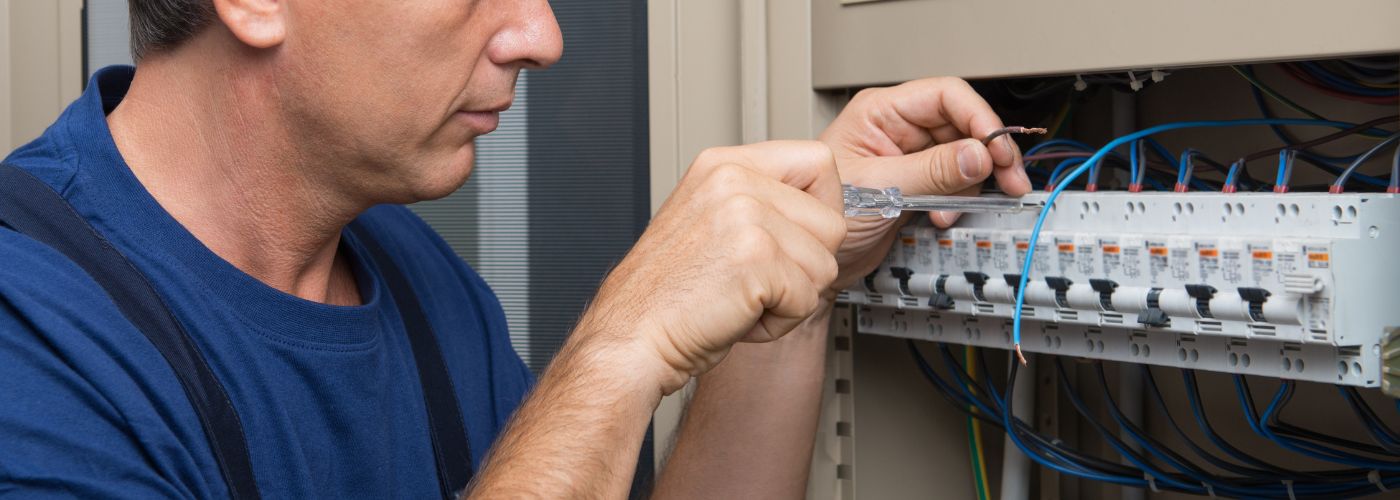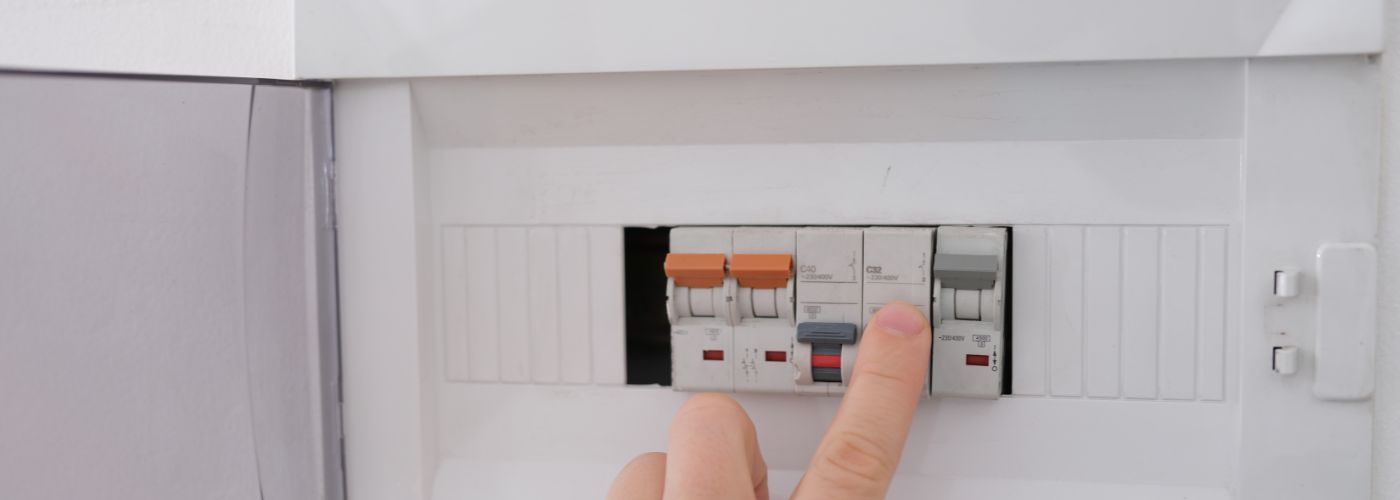Circuit breakers, those unsung heroes of your home’s electrical system, play a crucial role in keeping your space safe and functional. But what exactly are they, and why does your circuit breaker keep tripping?
Join us as we dive into the world of circuit breakers, explaining their importance, addressing safety concerns, and offering tips to prevent those inconvenient trips!
Why Does My Circuit Breaker Keep Tripping?
It’s not uncommon to experience a circuit breaker trip from time to time, but frequent tripping can be frustrating. So, why does it happen? In simple terms, circuit breakers are designed to protect your electrical system from overloads, short circuits, and faults that could lead to fires or electrical hazards. When your circuit breaker detects an issue, it “trips,” which means it interrupts the flow of electricity to the affected circuit. Remember: with circuit breakers playing such an essential role in protecting your home, it’s important to keep them functioning properly with professional circuit breaker repair!
Common reasons for circuit breaker trips include:
Overloading: Overloading occurs when you connect too many devices or appliances to a single circuit, drawing more power than it can handle. The breaker trips to prevent overheating and potential fires.
Short Circuits: A short circuit happens when a hot wire comes into direct contact with a neutral wire, causing a surge in current flow. This can lead to a trip, as it can be hazardous.
Ground Faults: Similar to short circuits, ground faults occur when a hot wire contacts a ground wire or a metal box. These faults can also trip the breaker to protect against electrical hazards.
Aging Wiring or Faulty Appliances: Worn-out or damaged wiring, as well as malfunctioning appliances, can trigger a circuit breaker trip. In such cases, it’s essential to address the underlying issues.
Is It Dangerous If A Circuit Breaker Keeps Tripping?
While frequent circuit breaker trips can be frustrating and inconvenient, they serve a vital purpose in protecting your home from electrical hazards. So, no, it’s not necessarily dangerous if your circuit breaker keeps tripping. In fact, it’s a safety feature that helps prevent more significant problems like electrical fires, damage to your appliances, and wear on important components in your home, like your light switches!
However, if your circuit breaker trips frequently, it’s crucial to investigate and address the root cause. Ignoring the issue could lead to more significant problems over time.
Can A Circuit Breaker Fail Without Tripping?
Although circuit breakers are designed to trip when they detect issues, they can occasionally fail without tripping, leaving your electrical system vulnerable. This situation is less common but still possible. A circuit breaker may fail in a “closed” position, allowing an overloaded or faulty circuit to continue operating, which is a safety hazard.
To avoid this, it’s essential to periodically test your circuit breakers and ensure they function correctly. If you suspect a circuit breaker is faulty, consult an electrician to replace it promptly.
How To Prevent A Circuit Breaker From Tripping
While circuit breakers are a critical safety feature, constant tripping can be annoying. Here are some tips to prevent your circuit breaker from tripping:
Spread the Load: Avoid overloading a single circuit by distributing your electrical devices and appliances across multiple circuits. This reduces the chances of an overload.
Upgrade Your Electrical Panel: If you live in an older home with a dated electrical panel, consider upgrading to a modern one with higher amperage capacity. This can handle more power and reduce the likelihood of tripping.
Address Wiring Issues: Have a professional electrician inspect and repair any worn-out or damaged wiring in your home. Faulty wiring can lead to circuit breaker trips and pose a significant safety risk.
Replace Faulty Appliances: If a specific appliance consistently triggers circuit breaker trips, it may be faulty. Replace or repair it to prevent further issues.
Use Surge Protectors: Consider using surge protectors for sensitive electronics and appliances. These devices can help protect your devices and reduce the risk of circuit breaker trips due to electrical surges.
Regular Maintenance: Perform routine maintenance on your electrical system, including tightening loose connections and inspecting electrical outlets and switches.
Circuit breakers are essential components of your electrical system, ensuring your safety by preventing overloads and other electrical hazards. Frequent trips may be inconvenient, but they’re a sign that your circuit breakers are doing their job. If you experience continuous issues, consult a professional electrician to identify and address the underlying problems. By following these tips and staying informed, you can maintain a safe and functional electrical system in your home!



